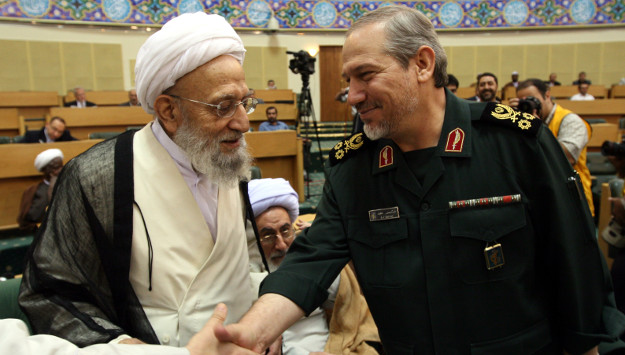The Islamic Revolutionary Guards Corps (IRGC) has claimed that its engineers are tasked to repair the Mosul Dam, Iraq’s largest dam that generates hydroelectricity and provides water for agricultural irrigation in Nineveh Governorate.
Hailing the IRGC’s scientific capabilities and non-military expertise, General Salar Abnoush, the deputy head of IRGC’s construction conglomerate Khatam al-Anbiya Construction Base, said that the company was busy “repairing cracks in Mosul Dam to prevent the complete inundation of the Iraqi cities of Samarra, Mosul and Kadhimiya.”
Comment:
It is difficult to corroborate Abnoush’s claim that the IRGC’s engineering arm is involved in the construction of the Mosul Dam. In March, the Iraqi government signed a 296-million-dollar contract with an Italian company to fix the dam.
But what is well-established is that the IRGC uses its soft-power assets to complement its military strategy in the region. Through extensive soft-power efforts – including myriad construction projects, charity work, cultural and media activities, and religious (often sectarian) programs – the IRGC promotes its ideological, political and military agenda at the expense of the interests of the United States and regional Arab countries.
In February 2010, the US Treasury Department designated IRGC’s Khatam al-Anbiya (Gharargah-e Sazandegi-ye Khatam al-Anbiya, or GHORB) as “proliferators of weapons of mass destruction (WMD).”
The fact that GHORB, disguised as a construction company, is directly involved in subversive activities in the region was further established in February 2013 when Hassan Shateri, the head of GHORB’s Lebanon branch, was killed while he was transferring arms from Syria to Lebanon.



